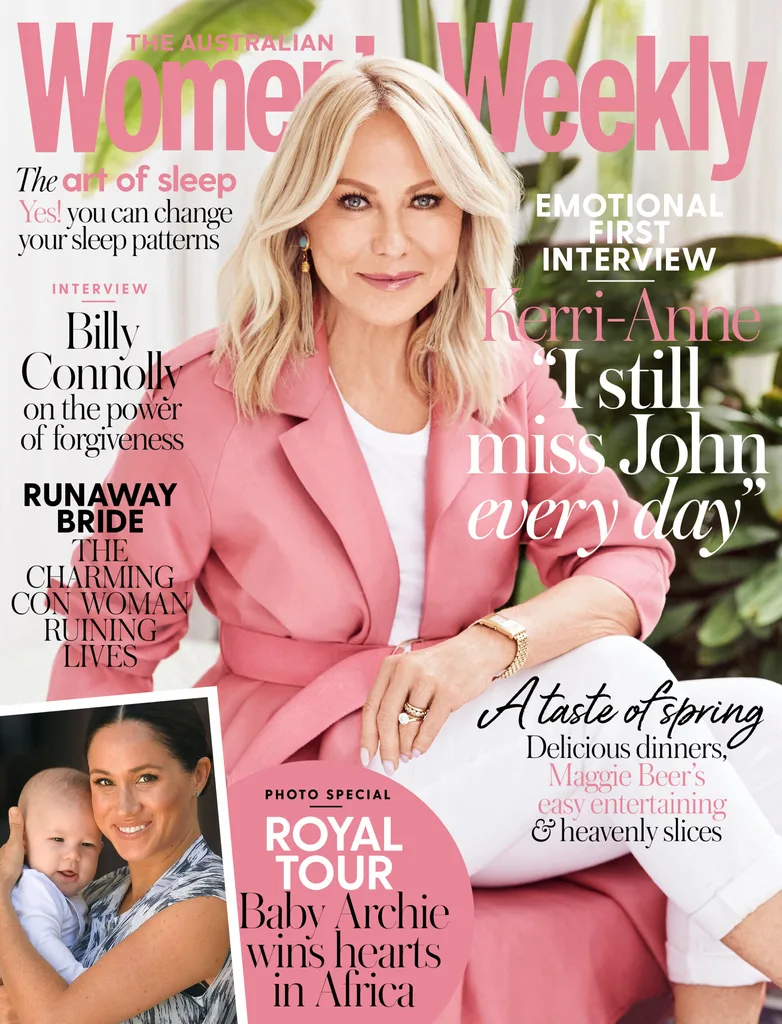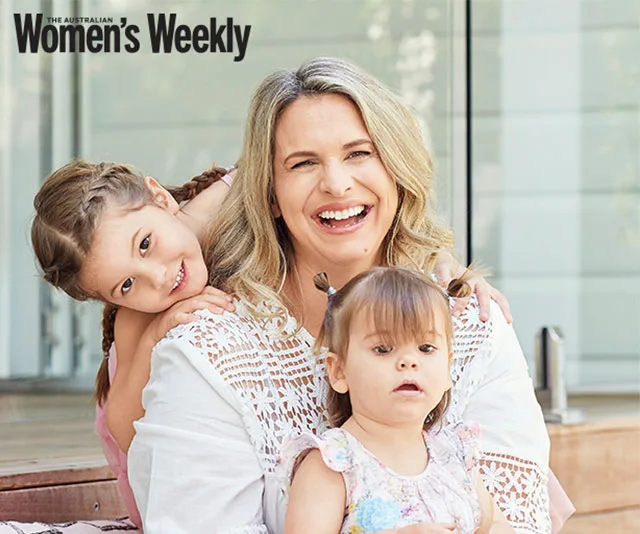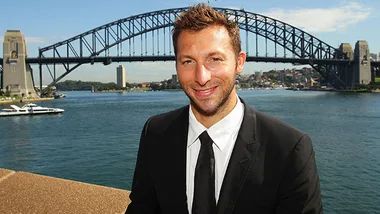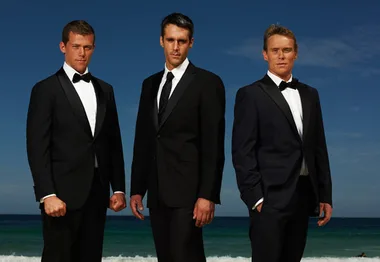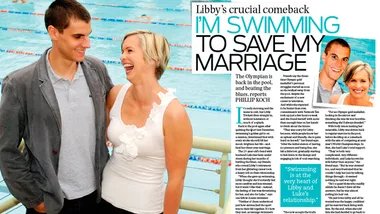Libby Trickett doesn’t exactly remember the details of the day when her entire world came crashing down, but when it did, it came fast – way faster than any 100-metre final she’d swum during her career.
Struggling with motherhood after the birth of her first daughter, Poppy, the retired four-time Olympic gold medallist and former world champion felt that if she could just get to the Mum’s and Bub’s class at her local gym to get those endorphins pumping through her weary body, then everything would be okay.
Five minutes into the half-hour drive, something deep inside Libby snapped.
The girl with the trademark grin was in free fall, screaming at the top of her lungs, “Shut up! Shut up! You’re not taking this away from me!”
And at that moment, for the first time in 20 years, she finally faced rock bottom.
She was once the fastest woman on water. Now, she was barely functioning. Most days it was an effort even to shower.
But that morning, she was determined to do something for herself, so she buckled her “howling like a banshee” eight-month-old daughter into her car seat and took off in a blurry haze.
“It’s a miracle we’re alive and we didn’t hurt anyone,” she says. “I have no idea how I didn’t crash the car. I was screaming hysterically: ‘Why does my daughter hate me?’ The darkness was blinding.
“I sat slumped over the wheel on the side of the road, my precious firstborn sound asleep in the back seat, exhausted from her own tears. I sobbed until there was nothing left in the tank – I was completely spent.”
That was 2015, and while Libby was able to acknowledge something wasn’t quite right, she refused to give in to the demons who had staked their claim years before.
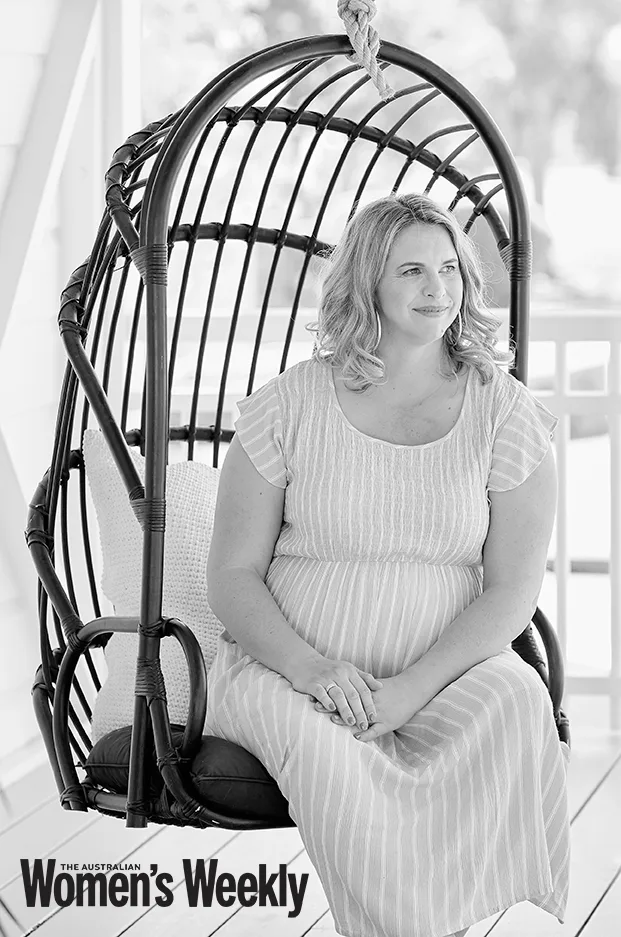
Libby admits the warning signs of crippling depression had been hovering since she was a little girl, but she couldn’t bring herself to acknowledge them, let alone call for help.
(Credit: Photography by Nick Cubbin. Styling by Jamela Duncan.)“I was having thoughts I’m not proud of,” she admits to The Weekly on the eve of the publication of her brave memoir, Beneath the Surface.
“I understand now how some women can kill their babies. Writing about it in the book, it was cathartic on one level, but incredibly confronting to actually realise that could’ve been me. And now I find myself having only compassion for those women, who once upon a time I saw as monsters.
“I was on autopilot. I did what I had to do in a day, but I was so bitter with the world, and so angry with Poppy. Why me, why do I have the difficult kid? Asking this little bundle of innocence, ‘what’s wrong with you?’
“I loathed spending time with friends who had small babies, and when I did, I’d wear a bright smile and rattle off how I could do with a decent night’s sleep. I felt ashamed, like this weakness had consumed me. Unless you’ve been through it, no one understands.”
BELOW: Libby reminisces on her Olympic achievements on National Olympic Day (June 23).
Libby never did make the class that day, and she knew this time she couldn’t claw her way back. She picked up the phone and called the one person she was sure she could rely on – Poppy’s dad, her beloved Luke.
“He answered with that measured voice of his – I think he’d been expecting my call. I suspect he knew well before I was properly diagnosed with postnatal depression, but I had to get to that point on my own. He assured me we would get the support I needed.
“My love for Luke is palpable – he’s not once faltered, and always has had a hand on my back as I’ve waded through some very troubled waters. When I finally admitted I needed help, suddenly the lights were back on,” she says.
Swimming’s golden couple first met after being selected on the Australian Youth Swimming Team in 2002. For Libby it was love at first sight, buoyed by his kind eyes, with Luke admitting much later the 16-year-old beauty who could light up a room with her smile, had him at hello.
“We were in the departure lounge at Sydney Airport en route to New Caledonia for competition, and as swimmers go, all the boys on the team were pretty handsome.
“But this one young man caught my eye and I noticed his collar was turned inside out so I fixed it. He later told me that was the moment he fell in love with me.
“We were a couple of smitten teens from the get-go. Luke was as committed to his academic life as he was to swimming. He was studying economics at the University of New South Wales and I realised he was really smart. We have a similar sense of humour, so at least we think we’re funny,” she says smiling.
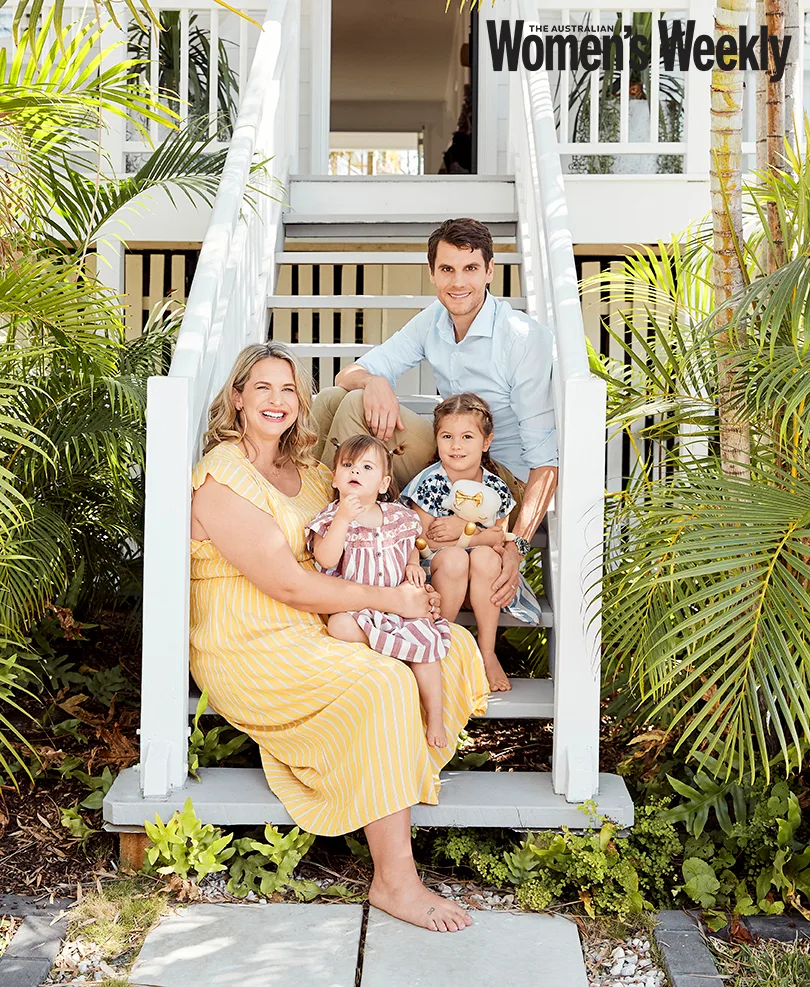
The happy family: Libby and Luke with their daughters Edwina and Poppy.
(Credit: Photography by Nick Cubbin. Styling by Jamela Duncan.)They married in April 2007, on the only weekend Libby’s coach would release her from her gruelling training schedule. Starting a family was on the cards but not yet – after all, Libby was only 22 and had plenty more to prove in the pool, knowing she had years after swimming to embrace family life.
Today, the Tricketts are only weeks away from welcoming their third child – a little brother or sister to Poppy Frances, four, and 19-month-old Edwina Daisy.
Libby, now 34, and Luke, 36, who runs his own fund management company, agree they’re in a much better place in 2019 than they’ve ever been.
“There’s finally light at the end of a long and dark tunnel. We suffered through a heartbreaking miscarriage in 2014, which I think was the trigger for my eventual breakdown after Poppy was born.”
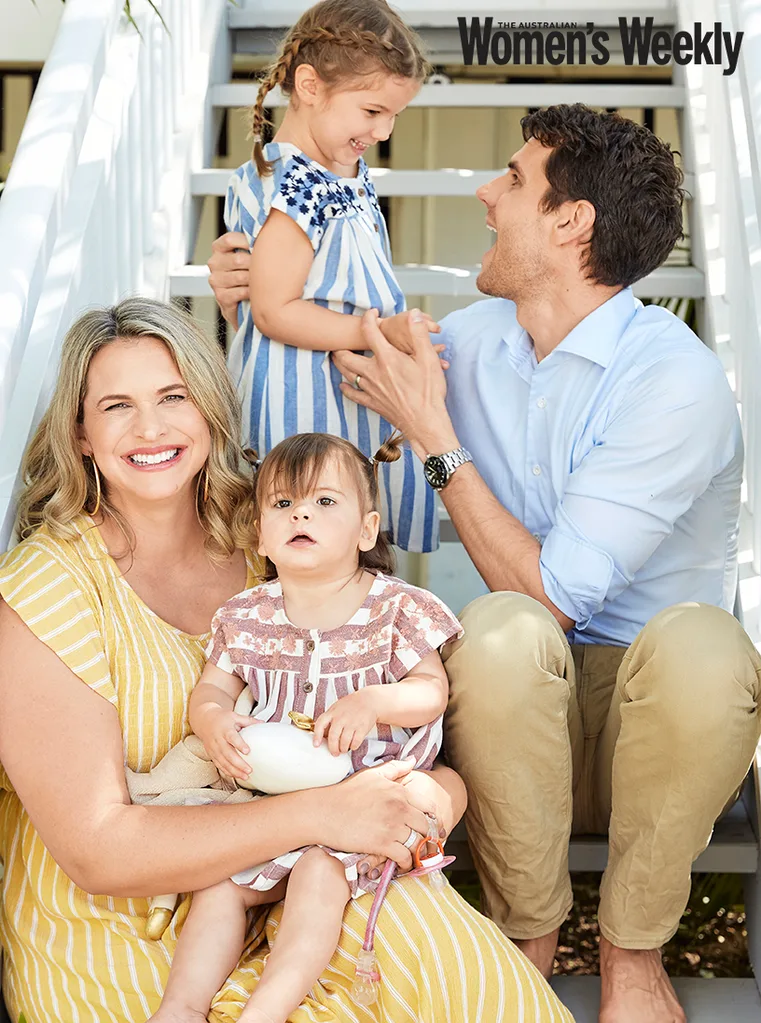
“We still struggle like any parent who has experienced such an enormous loss, but now I don’t blame myself, and that’s a breakthrough,” Libby says.
“We’ve come a long way, dealing with my health issues head-on. The postnatal depression has been particularly tough, but I’ve turned the worst of the corners. I thought I had to be this perfect mother, but as it happens, I’m actually pretty good at it – except for arts and crafts, which is not my calling, I’m afraid.”
Up until 2013, when Libby finally retired from swimming after a failed comeback, she struggled with the fact that she no longer had someone to tell her what to do every second of the day.
WATCH BELOW: Stephanie Rice’s swimming clinic for young children in India. Article continues after video.
“As a top performing athlete, you’re a machine and when I began spiralling I knew I had to get a whole new routine to replace the old one. I learned quickly it’s okay to take time out, me time, and I’m convinced getting enough sleep is the key to functioning effectively.
“I have a wonderful psychologist who has been with me right throughout my career – we all need somewhere to go and vent – and the exercise factor is more important than ever. I battled after swimming with binge eating, but thankfully now I’ve got my diet under control.”
Born Lisbeth Constance Lenton on January 28, 1985, in Townsville Queensland, youngest of four, Libby has two older sisters, Victoria and Justine, and one brother, Stewart. They were a close-knit family who spent much of their childhood swimming in the family’s backyard pool.
BELOW: Libby is still passionate about physical fitness.
“I was four when I swam my first race,” Libby recalls. “From the very beginning I wanted to be a rocket – speed through the water – and I loved the feeling of kicking as hard as I could to make it to the wall first – a feeling I knew I would likely chase for the rest of my life.”
Libby’s mum, Marilyn, has dedicated her life to being a wonderful mum and grandma. But Libby is resolute about not going into detail about her father. She refuses to acknowledge him as anyone important in her life. He quite simply does not exist in her world.
“He abandoned his family when I was just 10 years old,” she says, simply.
“We left Townsville without him to resettle in Brisbane. He’s not a bad person, but emotionally, there’s nothing there between us, and I’ve never connected with him.
“I’m sad for him, missing out on our girls, because they’re remarkable little people. I hope he’s happy and I don’t harbour any anger. I’m always open to mending the rift, but it won’t be me seeking it.”
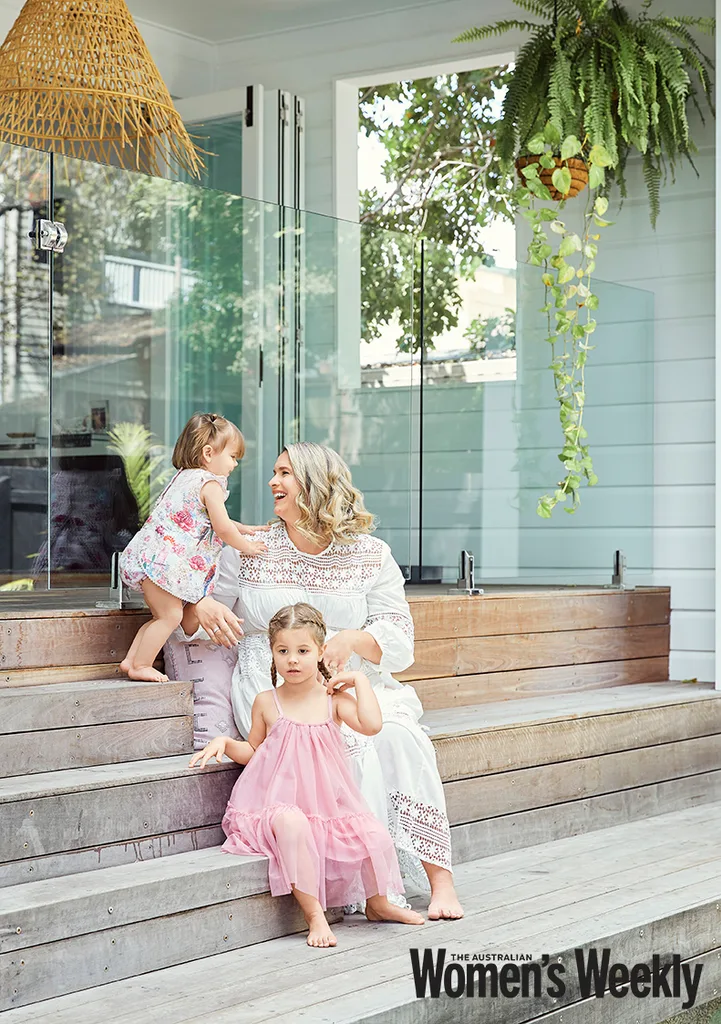
Libby admits it was her call not to invite her father to her and Luke’s wedding ceremony.
(Credit: Photography by Nick Cubbin. Styling by Jamela Duncan.)Libby is quick to add the one benefit their father did afford them – he paid decent child support, allowing Libby and her siblings a good education.
“He paid mum enough money to send me to Somerville House here in Brisbane. That’s where, as a student, I met the only other man in my life who I truly trust and love – my longtime coach Stephan Widmer. Over the years he became more of a father figure for me than anyone else in my life – a man of integrity and kindness.”
Libby is not only one of our finest sportspeople, she’s also one of our most fiercely outspoken, particularly about her zero tolerance for drugs – both recreational or performance enhancing.
“There’s never a happy ending with drugs,” she insists. “Many years ago, I had to speak during a segment on the Today show about the legalisation of marijuana. I write about this at length in the book because I know firsthand from my own family.
My brother Stewart has suffered physically and emotionally from alcohol and drug addiction for too many years, and no family deserves to go through the nightmare we’ve endured – most of all, our mum.
“As far as drugs in sport go – anyone taking them – they’re cheats and deserve life bans … There’s nothing more debilitating for an athlete than knowing a cheat stands beside you, and probably will beat you because they’re on the gear. That’s just plain wrong.
“With the recent Shayna [Jack] case, which sadly overtook Mack Horton’s brave stand against Chinese swimmer Sun Yang, I have only this to say: I went through my own scare back at the 2007 Commonwealth Games when a condition I was born with means I naturally have very high testosterone levels, and while I did clear my name and was found innocent, the strain of it all was overwhelming.
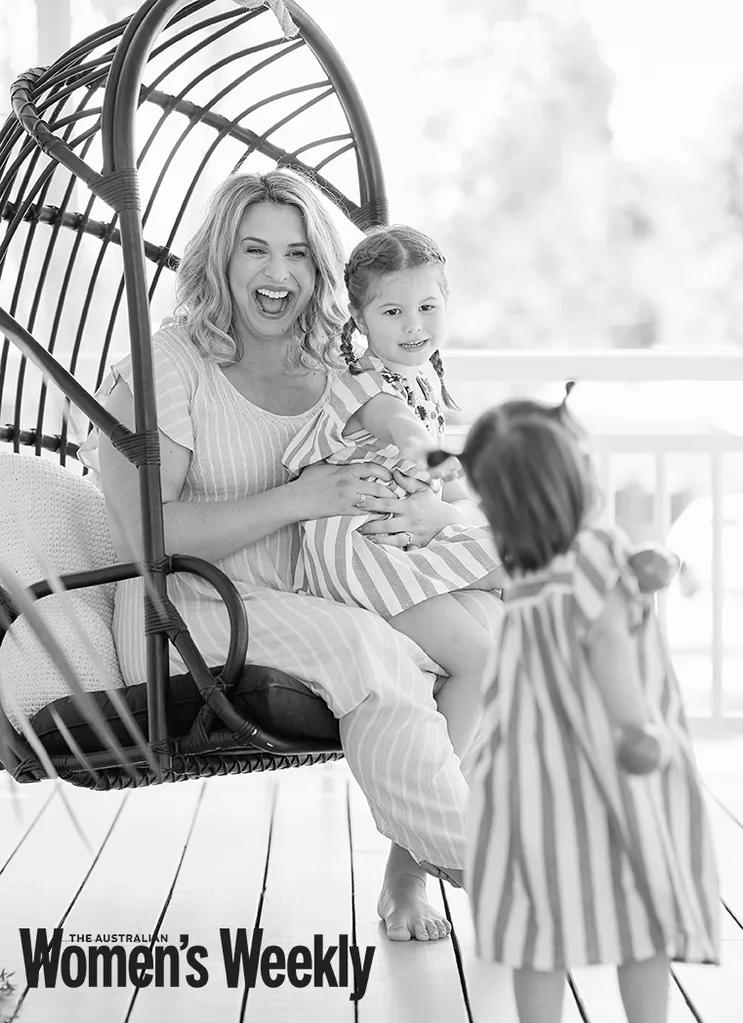
Libby was adamant that her memoir would cover both the ups and deepest downs of her life.
(Credit: Photography by Nick Cubbin. Styling by Jamela Duncan.)“If Shayna has inadvertently taken something, then she’s a very silly young lady. Remember though, she’s only 20. I know her as a very sweet girl, and her family are good folk. With the rigorous testing in sport today these kids have to be more aware and far more vigilant with what they’re putting into their bodies.”
Libby’s decision to sit down and write her book came easily. She was adamant with the publishers that, if she was prepared to put the details of her often tumultuous life in print, they needed to understand that it wouldn’t be sugar coated.
“I said ‘warts and all’ – and there are plenty of warts! From the ups and downs of my swimming career, to the most honest account I could muster to describe how I overcame the demons. If I help at least one person battle theirs, then writing this book was worth it,” she says.
BELOW: Libby holds the first copy of her new memoir, Beneath the Surface.
With her sports bag slung over her shoulder, Libby is off to collect her two girls from daycare, but not before a quick detour to her favourite place – the historic Valley Pool in central Brisbane.
“Getting through the dark days over these past few years, I forced myself back into the pool, regardless of how low I was feeling. I now swim like no one is watching or judging or timing me – I swim only for the pure joy of being in the water,” she says with that sunny smile.
“My girls know their mum is far more content if she’s been to her happy place. You’ll never take the swimmer out of this girl. It gave me life for all those years and as it turns out, has saved me. That and my precious Luke, and my glorious family. I owe them my life. This is my final comeback – the sweetest one of all.”
Beneath the Surface is published in October by Allen & Unwin ($32.99).
Read this story and more in the November issue of The Australian Women’s Weekly, on sale now.
